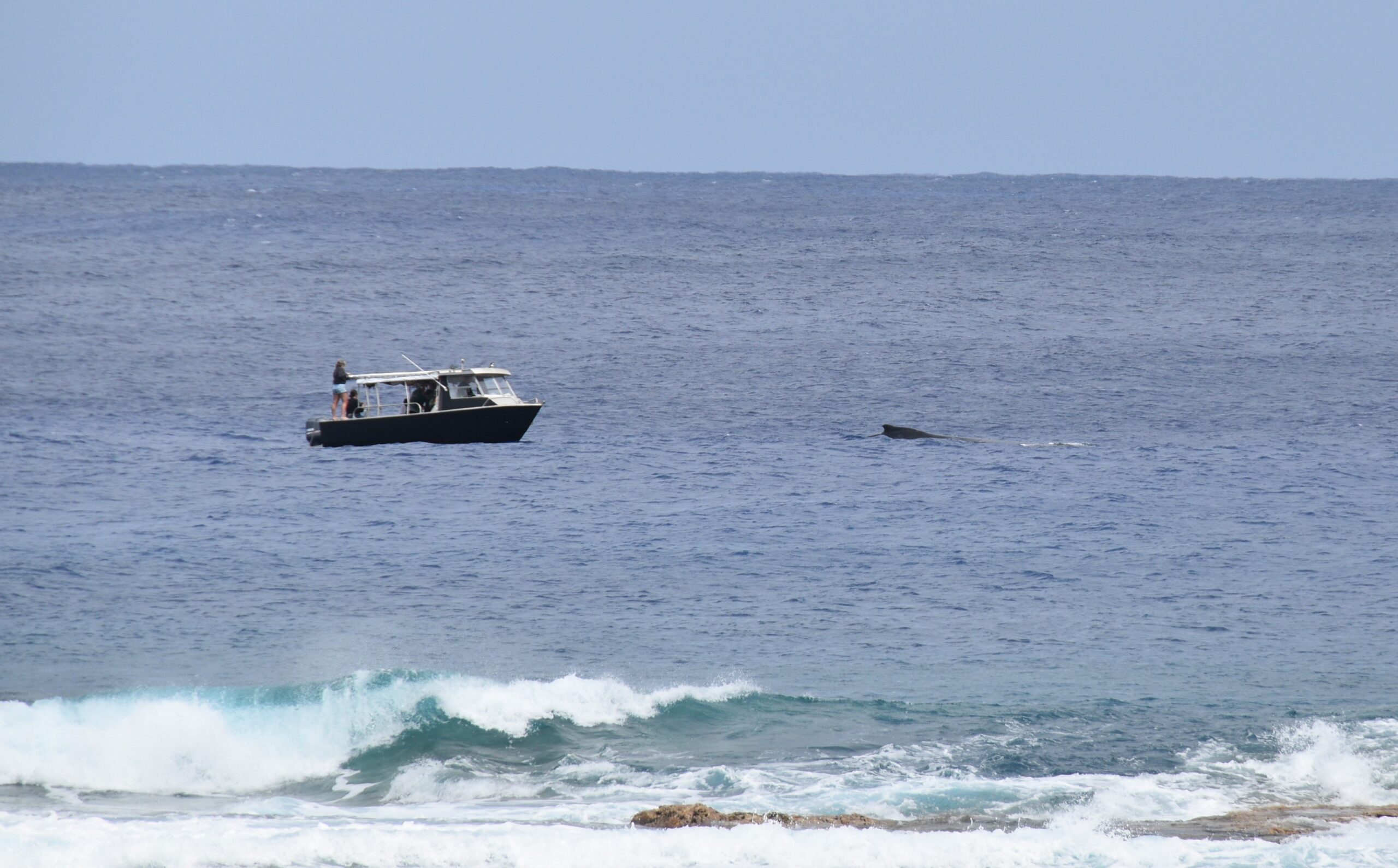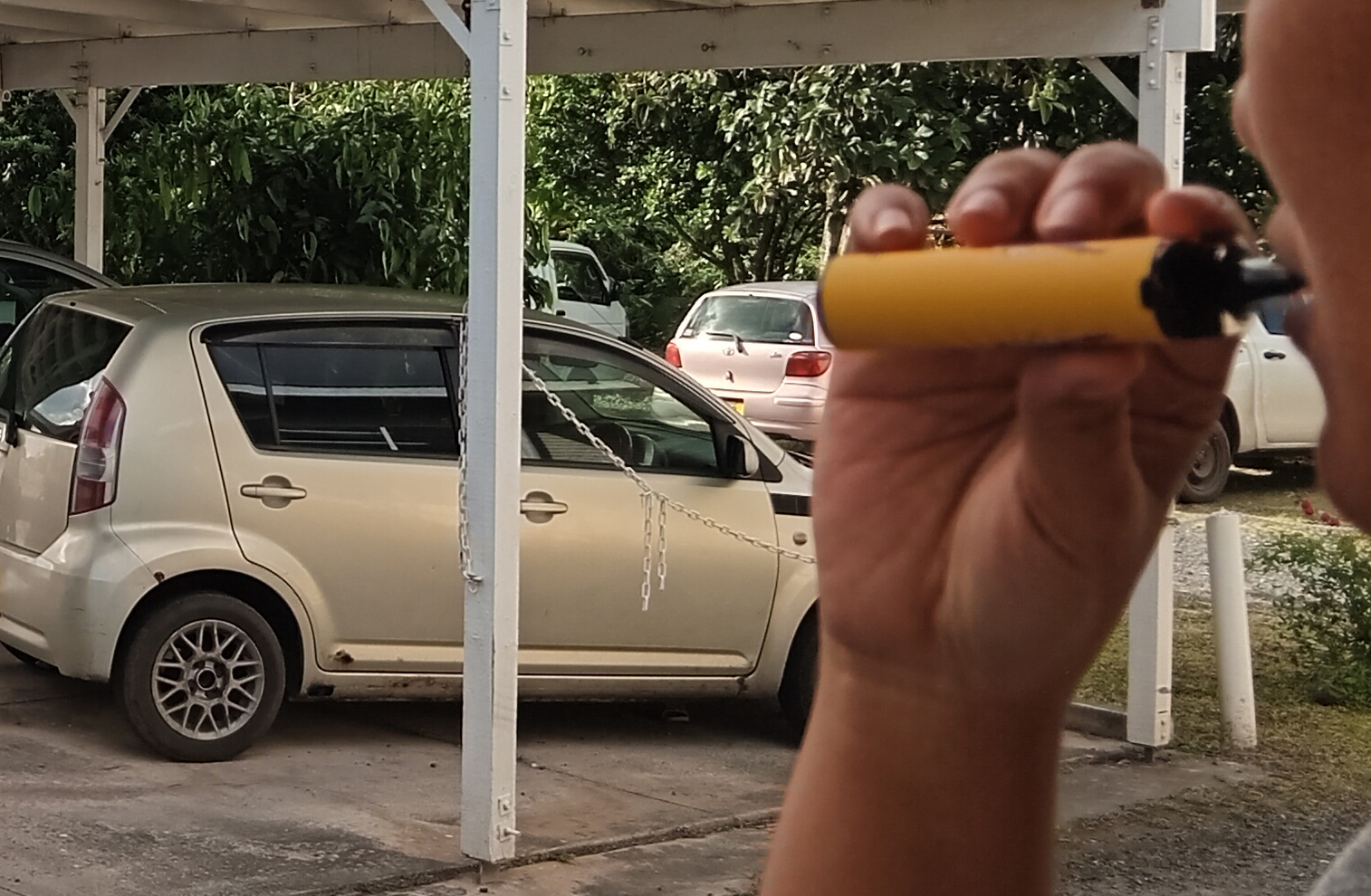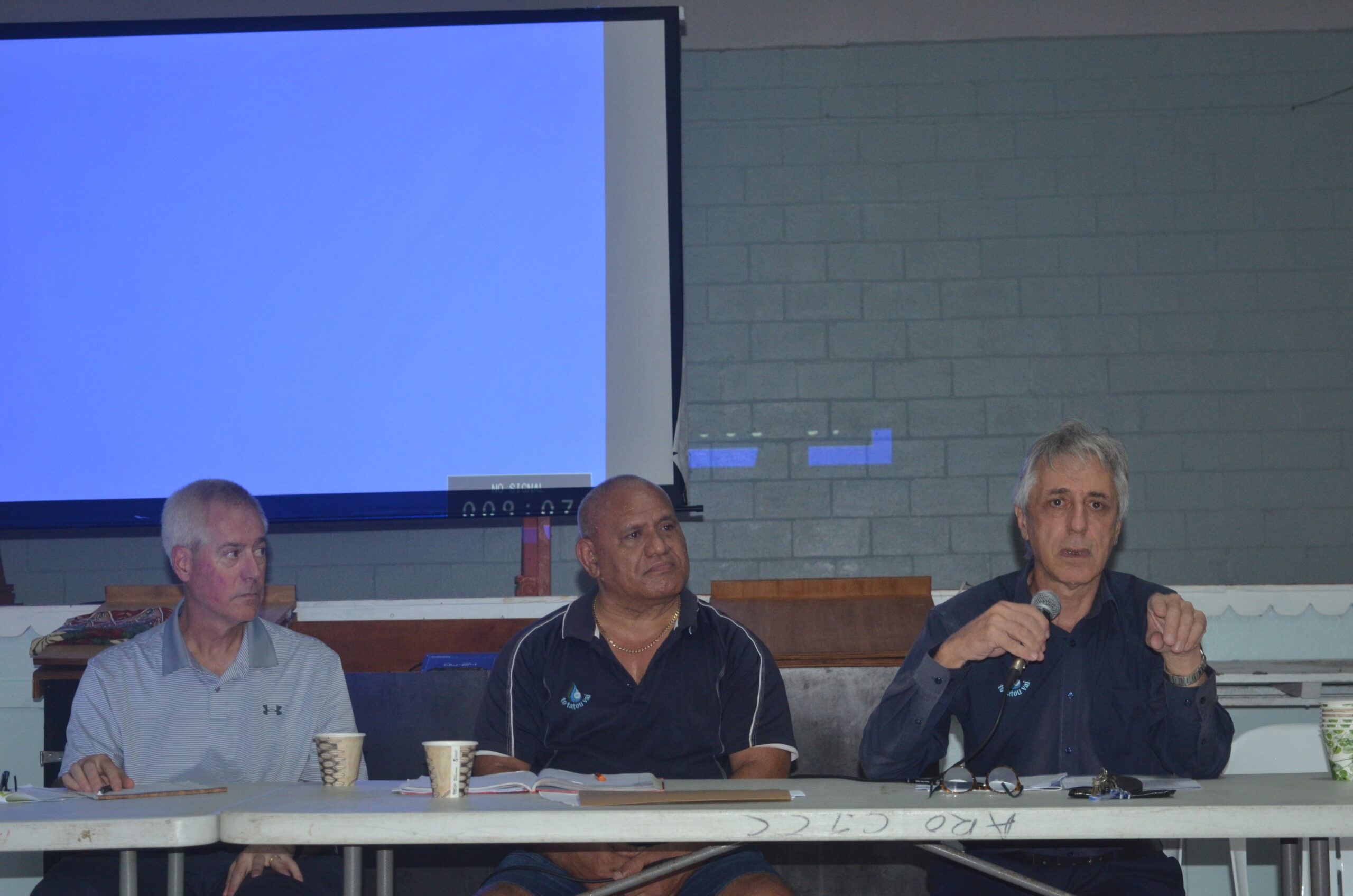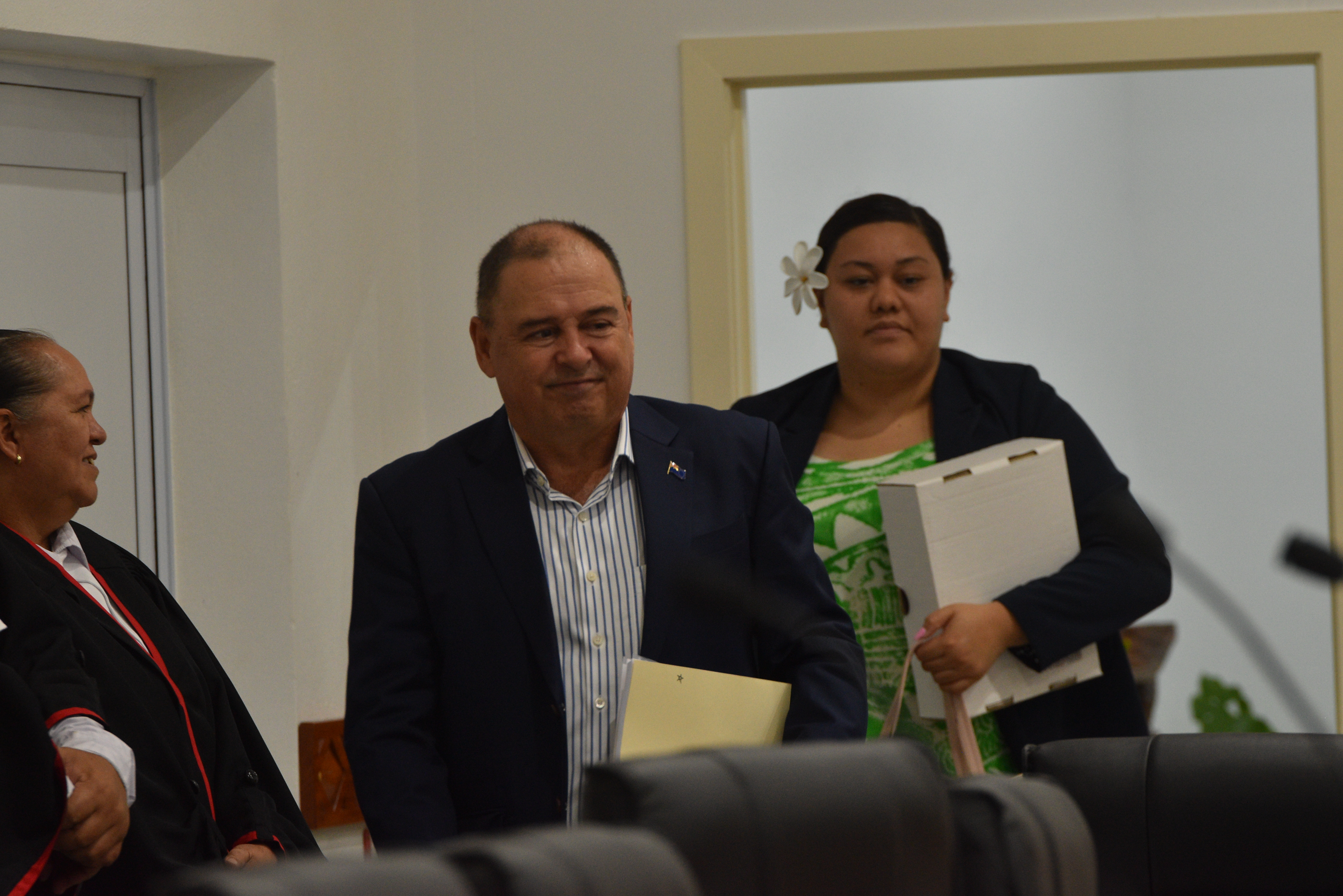Te Ipukarea Society welcomes legal personhood of whales in international waters
Monday 30 October 2023 | Written by Losirene Lacanivalu | Published in Environment, National

Whale watching
Te Ipukarea Society (TIS) has welcomed the recent news on Maori and Pacific Leaders proposing legal personhood of whales in international waters to the United Nations.
A Newsroom.co.nz article published late last month said Māori leaders, including the Māori King, together with other leaders from throughout the Pacific have supported a resolution for the adoption of the whale as ocean ambassador to the United Nations.
And they are seeking support for a global agreement on protecting the legal personhood of whales in international waters.
Cook Islands environmental group TIS technical director Kelvin Passfield says: “We are always happy with any initiative that provides greater protection for our Moana nui o kiva, our ocean.”
Passfield said: “Our Ocean is under increasing threats in recent times, in particular from climate change and the push to start deep seabed mining, both of which could cause irreversible harm to our ocean. Providing a voice for the whales, by granting them legal "personhood", can only help us in our campaign for a healthy ocean.”
Whilst the proposal was welcomed by TIS, Cook Islands Ministry of Marine Resources (MMR) says they do not have any view at this time.
MMR’s secretary Pamela Maru was asked if Cook Islands / MMR was looking to join this proposal or their views on the proposal, she said: “The Ministry of Marine Resources has not been involved in the story you referred to, as such have no view on the proposal at this time.”
National Environment Service director Halatoa Fua said from an NES perspective, the Cook Islands is home to the largest multipurpose Marine Park – known as our Marae Moana.
“Whales are a migratory species, and from September to October you will see them passing through our Cook Islands waters.”
He added: “NES encourages our people to be environmental stewards, and by protecting our Marae Moana, we are providing a safe passage for whales to pass through.”
According to Newsroom, the resolution was proposed to the UN by Dr Ralph Chami of Blue Green Future, who with blue carbon expert, Dr Carlos Duarte, is one of the lead technicians working with Indigenous founders of the Hinemoana Halo Ocean Initiative.
“For the first time, our tribes have formed a collective to work to implement indigenous customary protections across whale migration routes between critical feeding and breeding grounds,” said Lisa Tumahai of Ngāi Tahu.
Legal personhood – which has parallels with corporations and trusts – was first enacted to protect the environment in Bolivia and has also been used as a mechanism to protect the Whanganui River and the Urewera.
Tumahai is co-chair of the Hinemoana Halo Ocean (H20) Fund which was set up to raise a $100 million blue bond for Indigenous-led blue habitat restoration and rewilding projects as part of a large-scale plan to recover and protect whale populations across the Pacific Rim.
The fund is a joint Conservation International Aotearoa initiative with seven Indigenous partners from New Zealand, Tonga, French Polynesia, and also the Cook Islands.
“Dr Chami’s work with our Indigenous tribes in Aotearoa and the Pacific adds to the growing scientific acknowledgement of the role that our relations, the Tohorā (whales), play in addressing the twin challenges of climate change and ocean biodiversity loss,” said Mere Takoko, Vice President of Conservation International Aotearoa.
Indigenous representatives pledged to work together to create the world’s largest Indigenous marine protected area network over a 2,200,000 km2 area.
The network will come under a customary protection framework that intends to put more investment into whale conservation and introduce seasonal protections across whale migratory routes or “blue” corridors. The full plan will be released at the 2024 UN Ocean’s Decade Conference in Barcelona, Spain.
- NEWSROOM / LL












































